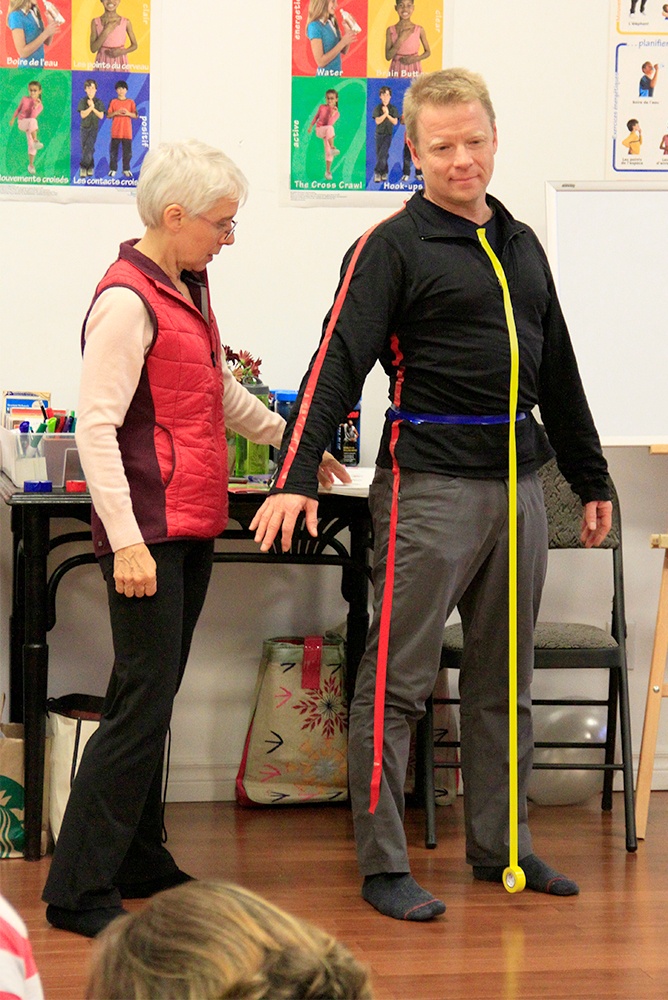What Is MBL (41618)

Cecilia Koester, M.Ed, has developed a movement-based program that addresses the foundational pieces of learning so that children and adults who are differently abled can learn how to learn. She teaches/consults in a functional, practical way so that any information is directly applicable and useable.
Movement Based Learning™ offers excellent applications for a variety of special needs and physical challenges such as autism, attention deficit disorders (ADD and ADHD) and dyslexia among others.
Participants taking either of her courses will leave with new skills that optimize learning and performance in all areas of life. And they will find that these tools are immediately applicable in home, school and therapeutic settings.

About the Movement Based Learning Approach
Movement-based learning has come to be known in the neurobiological field as any brain-based learning that stimulates the growth of neural pathways through movement of the body. Movement-based learning grew out of research revolving around kinesiology. Kinesiology is the study of human movement that encompasses biological components of movement including anatomical, physiological, neurological, biochemical and biomechanical. Theoretical knowledge of kinesiology is applied in many areas including physical therapy, occupational therapy, and vision training. The approach of these applications can be therapeutic, preventive, or high-performance.
Cecilia uses movement-based learning in the educational realm rather than the developmental kinesiology realm which means that she teaches adults to work with differently-abled children and adults (through workshops and private consultations) by showing how to observe postural and behavioral cues.
Once this information is gathered, a movement program is developed that will enhance a more integrated way of learning. This will allow for the child or the elder to accomplish his goals in life with greater ease – the goal may be walking, talking, self-feeding, reading with ease, organizing classroom tasks, relating to peers or learning to self-regulate behaviors.
Kinesiology is also studied in the relationship between the quality of human movement and the overall health and/or quality of life of a human being. This is the application that Cecilia uses in the books she has written, in the workshops she teaches and in the programs that can be developed individually and/or for groups.

Movement-based Learning and its Many Applications
Babies and young children naturally perform what experts in early childhood education call developmental movements. These movements develop the neural connections in the brain, which are essential to learning.
The foundational pieces of learning, the infant reflexes and developmental movement patterns, all play a part in the physical and mental growth of a human being. What Cecilia does is assist the adults in the child’s world – general and special education teachers, occupational therapists, physical therapists and parents, to come to a preliminary understanding of these reflexes and developmental movement patterns.
A change in the functioning level of a child or elder is assessed, developed, evaluated for effectiveness and then modified as the need arises. Through the use of the tenets of movement-based learning, the child or elder is better able to grasp the methods and techniques. There is a difference between movement-based learning that Cecilia discusses in her book (Movement Based Learning for Children of All Abilities, 2006, 2012) and Developmental Kinesiology. Cecilia’s approach to movement-based learning uses observation and guided information to establish a learning program that is filled with specific movements and activities. Developmental Kinesiology generally uses muscle checking to determine the specific activities needed to promote the natural development of an infant, child or adult.
Often times the approach that Movement Based Learning, Inc. takes in working with a child or elder, is a precursor to working more in-depth with Developmental Kinesiology, Rhythmic Movement Training and childhood reflexes.
